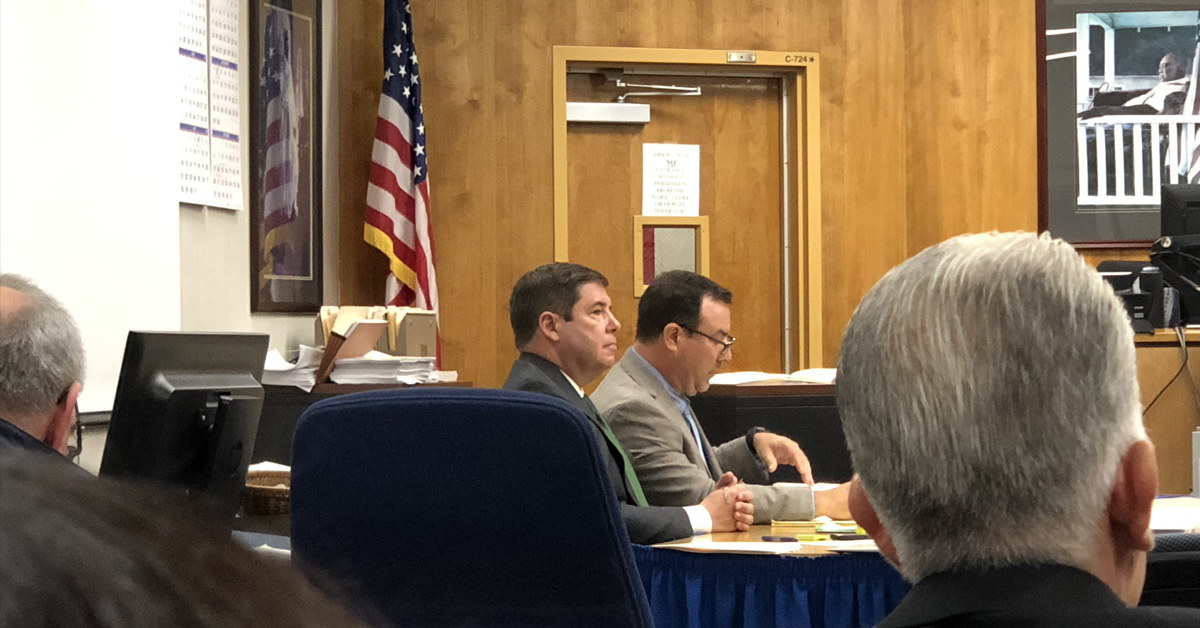As attorneys on both sides of Asm. Joaquin Arambula’s (D-Fresno) child cruelty trial settled in to offer their final pitch on guilt or innocence, the ninth and last day of trial turned into a knockdown, drag-out over a simple analogy.
Dr. Jekyll and Mr. Hyde.
It began as Assistant District Attorney Steve Wright, as genuinely soft spoken as he portrayed Arambula to be synthetically, painted the emergency room doctor as the titular character of Dr. Jekyll and Mr. Hyde, a man whose calm public demeanor covered up a private persona that gets physical while he is at his wit’s end.
The analogy stuck and it became the tug of war for the rest of the day, as Arambula attorney Michael Aed kicked off his closing argument alleging he was insulted by the literary inference.
The trial’s three-front battle of credibility – between the victim’s personality, the police investigation, and Arambula’s statements – had been a Jekyll and Hyde dichotomy of sorts.
At the outset of his closing argument, Wright worked to narrow the jury’s focus on the major issue of the trial.
“This case is not about spanking on the buttocks. This case is not about your approval of corporal punishment,” Wright said. “This is about a blow to a seven-year-old’s head.”
Wright spent much of his first closing argument reviewing footage from the seven-year-old’s forensic interview on Dec. 11, two days after the alleged incident and one day after she reported her injuries to staff at Dailey Elementary School.
At issue with the seven-year-old was the fact that her story changed from Dec. 10, when she spoke to Child Protective Services social workers and Fresno Police Officers, to Dec. 11, when she sat down for the forensic interview.
On the stand nearly two weeks ago, much of her recollection of what occurred on those two days could be described as hazy, at best.
Wright seized on the differences, noting the vivacious seven-year-old was “verbose” on some areas of her testimony, then “magically can’t remember” events at others.
On the stand, the seven-year-old attempted to soften and unwind some of her claims, alleging that Arambula merely “grasped” her face, rather than slapping it.
Wright, citing her testimony, argued that her discovery of the word came after relatives began using it around her to describe the incident.
“It’s clear she’s minimizing, maybe trying to protect her father,” Wright said regarding her revised testimony.
Amid the clips from the interview, Wright directed the jury to focus on things the child said and didn’t say.
One such instance: the child remarking why she didn’t want her father to go to jail. Wright pointed out that the seven-year-old merely explained that her reasoning was that he had done some good things for her, such as buy her a puppy, but didn’t say he should avoid going to jail because he didn’t hit her.
A subsequent clip reminded the jury of the instruction she received from her grandmother, Amy Arambula, to “[t]alk about all the nice things that Dad did for me so that he wouldn’t get into trouble.”
Other clips shown included the Dec. 12 KSEE 24 interview Arambula and his wife, Elizabeth, undertook. Wright seized on a key contradiction between the interview and Arambula’s testimony on Tuesday.
On Tuesday, he testified that spanking his daughter on Dec. 9 was the first time he had ever engaged in the act. On tape, Arambula referred to spanking his daughter as a tool of last resort, implying he had done it before.
Wright, in concluding, focused on motives and biases. In pointing at the adults who corroborated the seven-year-old’s original story – police, social workers, and teachers – he argued the jury couldn’t find any suspect motive or bias.
As for Arambula, there was a need to protect his reputation, family name, and occupation, Wright argued.
“I can’t understand throwing your daughter under the bus to save your own reputation,” Wright told the jury.
Aed kicked off his closing argument by putting the jury on its heels.
“Joaquin Arambula could be you,” Aed said, prefacing his argument that the justice system had corrupted in the case. “You could be sitting in that chair.”
Throughout, Aed worked to expose the daylight between Child Protective Services and the Fresno Police Department’s investigations. In his closing, Arambula’s attorney praised the CPS investigation – which yielded inconclusive results regarding general neglect on the part of the legislator.
Meanwhile, he admonished the Fresno Police Department for being overzealous, biased and yet incomplete.
“If this was you or me, this case wouldn’t have been filed,” Aed remarked, referencing longstanding allegations of political motivation.
He also worked to raise the specter of the seven-year-old victim embellishing her story for attention, referring to her as “an actress in many ways.”
Akin to the opening statement made by his counterpart, Margarita Martinez-Baly, Aed also delivered a barrage of counter charges related to the injury.
Over the course of his hourlong closing, however, Aed only briefly touched on one alternative theory for the facial injury posited by Arambula’s brother-in-law Nate Miller.
During his testimony, he claimed the victim and his son bumped heads while playing a game on Dec. 8, a day before the alleged incident.
Aed also pointed to statements from the victim’s six-year-old sister that she had been spanked by Arambula on Dec. 9.
As for the facial injury, Aed argued that the victim – who was described by her uncle as a “drama queen” – played up the fact that she had been slapped by her father after a school official asked her.
Aed added that the query was suggestive to the seven-year-old and she saw it as an opportunity for more attention.
Amid the shotgun blast of alternatives, Aed succinctly told the jury that there was no evidence to show how the child sustained the bruise to her face.
Wright, in a rebuttal closing, struck back at the multi-faceted defense, telling jurors “we don’t have to rely on all these different version of events thrown against the wall to see what sticks.”
He argued that, if Miller’s theory were true, Arambula would have noticed the injury at some point on Dec. 9.
Both sides, making their pitch for a verdict of guilty and not guilty, handed the case over to jurors.
They, as Judge Alvin Harrell III remarked, would be driving the bus.
Before departing the Fresno County Superior Court for the afternoon, jurors had selected their foreperson.
Deliberation begins Thursday morning at 9 a.m. When it finishes remains to-be-seen.









